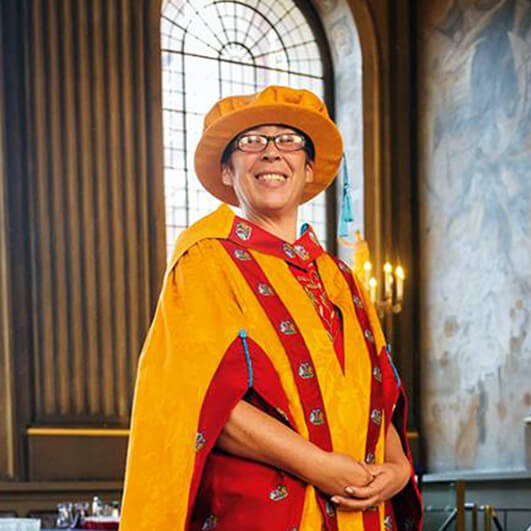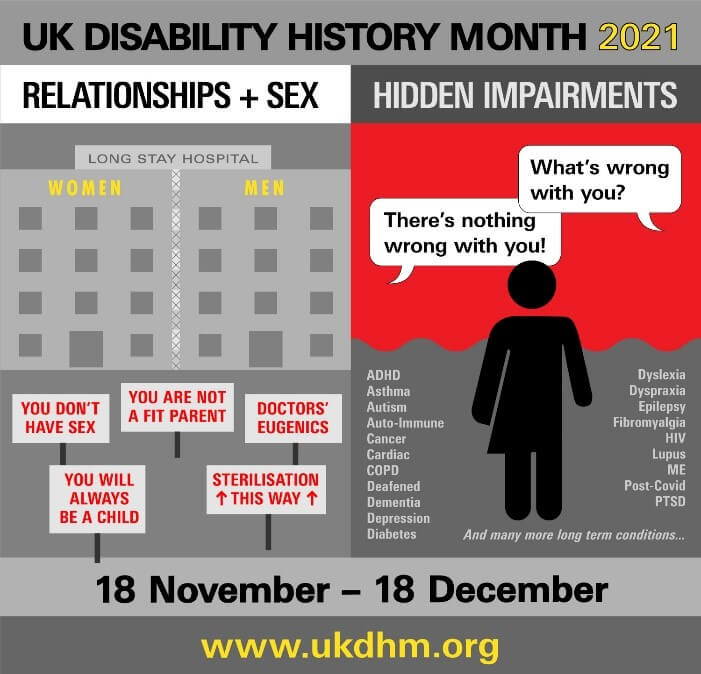3 December 2021
Supporting the transition of disabled students to higher education through peer-led ambassador schemes

Author
Dr Melanie Thorley
STAART Manager, University of Greenwich
Across November and December, the UK celebrates Disability History Month. This blog has been published on 3 December to celebrate and acknowledge the United Nations International Day for Persons with Disabilities. With an estimated 14 million disabled people living in the UK, there are quite a few of us.
There are two themes for Disability History Month this year - sex and relationships, and hidden disabilities. As I am a disability practitioner working in the higher education sector, this blog will focus on hidden disabilities and education.
Over 90% of disabilities are not visible and/or obvious which is why this blog is focusing on hidden/unseen disabilities. Special educational needs and disability education has certainly improved in recent years for many students, but education from primary through to higher education has a long way to go before there is equity within the sector. Those with specific learning difficulties (autistic and dyslexic spectra) make up the largest group of disabled students in UK higher education, and those with diagnosed mental health difficulties are the third largest group.
Prospective students are sometimes under the impression that they will not get an interview and/or be offered a place if they tick the box to disclose a disability. This is not the case - in fact, making your prospective university aware of your disability is an important step in ensuring the correct support can be made available for you. If a university is unaware of their disabled students, they will be unable to make support mechanisms available. Disabled students may be entitled to exam adjustments, specialist software, longer library loans and access to specialist staff such as sign language interpreters, sighted guides, dyslexia tutors and autism/mental health mentors.
Research and real experience have shown that the more disabled students are prepared for the realities of university life the more likely they are to stay and do well. I am not going to pretend or give false hope to disabled students who want to go to university that higher education is easy. It is not easy, but I would argue it is worth the sweat and tears to graduate. Possessing a university degree can lead to more confidence, more job opportunities, more opportunities to travel, more opportunities to meet like-minded people from different cultures, and much more.
University is very different from school and college. Schools and colleges tend to have rigid timetables, with full days of learning and numerous members of staff in classrooms. University students tend to have a lower duration of formal timetabled classes, with an expectation that additional study will be completed independently by students. With optional modules and opportunities to undertake a placement or year abroad, students will also find that those within their classes change more regularly than in their previous studies. These differences can make the transition to higher education difficult for any student, and in particular for disabled students.
One way that we can bridge the gap for disabled students is through student ambassador schemes. Many universities have student ambassadors with a small number of universities employing disabled students as specialist disability ambassadors. At the University of Greenwich, these specialist ambassadors are called STAART Ambassadors and we have had them now for over 14 years. The benefits of being STAART ambassador are numerous. They have the support of myself and each other; they can work around their studies; they get paid; and they have opportunities they would never have experienced otherwise, such as representing STAART at conferences and welcoming new disabled students.
STAART Ambassadors are also involved in outreach activities in schools and colleges. This work involves providing honest, impartial information about the realities of being a disabled student in higher education, presenting interactive workshops/webinars, taster days on campus, attending careers and higher education fairs, providing staff training, promoting our social channels, and other bits and pieces.
We also host bespoke STAART Transition Days for new disabled students every September and January. As all of our STAART Ambassadors are disabled students themselves and disabled students have the opportunity to meet our ambassadors during the application process, which enables them to make a more informed choice as to whether Greenwich is right for them.
My personal journey through university, as for many disabled students, has not been easy and I am very honest with prospective students. However, our STAART ambassadors are visible (via our distinctive t-shirts and lanyards) and proof that with adequate support, disabled students can thrive at university.

